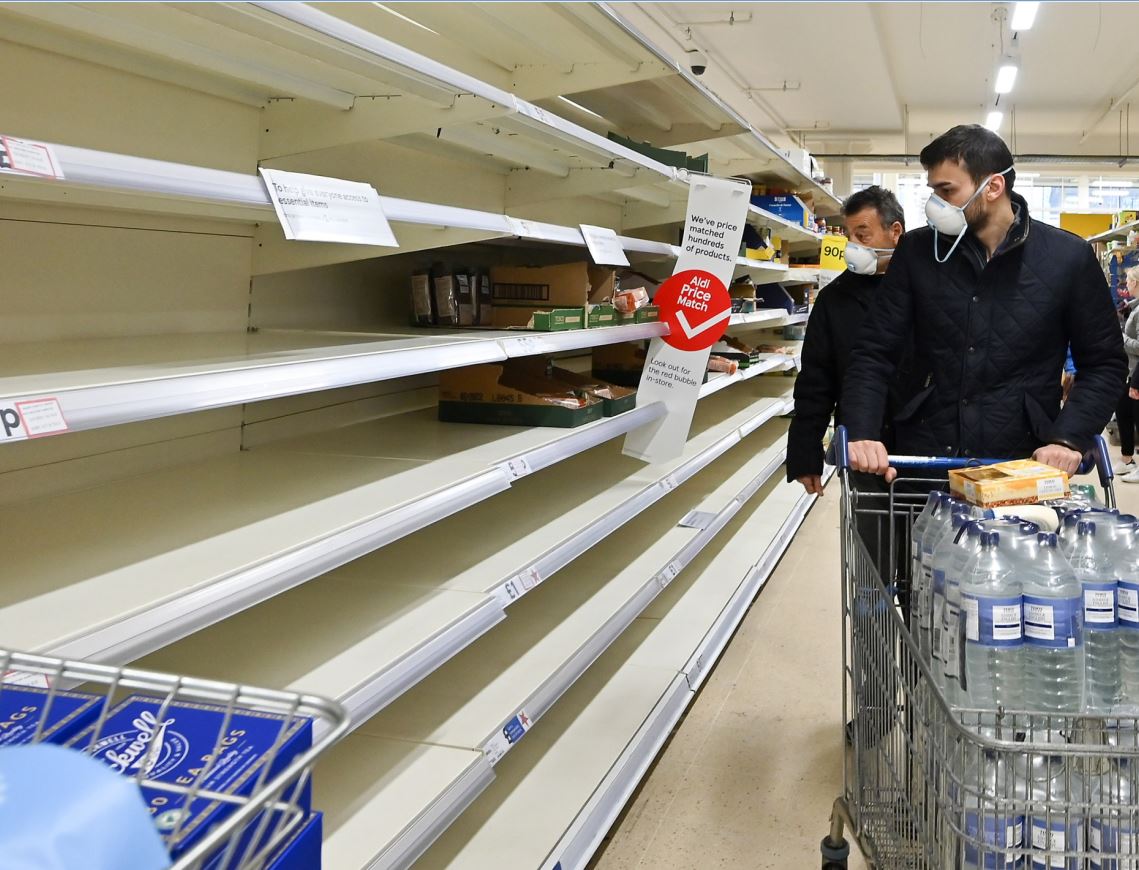


 1:25:50
1:25:50  2023-11-05
2023-11-05  1351
1351

1- Store emergency water. In the event of an economic collapse, it is possible that your power and water supply might be interrupted, or that you will not be able to pay for these things. You will need a supply of clean water for drinking, cooking and hygiene. You can purchase bottles of water or store water in your own containers. If you run out of water, you can take steps to sanitize contaminated water.
2- Stockpile food. The kind of food you store up for an emergency is different from the groceries you purchase each week. You need to get food that is non-perishable, does not have to be refrigerated and will provide you with the nutrition you need to survive. It may be very different from the food you are used to eating, but you will be glad you have it if you ever need it.
3- Start a garden. A garden allows you to continually have fresh, nutritious food to supplement your emergency food supply. Also, in an economic crisis the cost of living might skyrocket. Having a garden will help you to save money on your grocery bills. It will also allow you to be self-sufficient should a food shortage result from the financial collapse.
4- Create an emergency kit. This is a collection of household items you might need in an emergency. In the event of an economic collapse, you may not be able to shop for these supplies, so it’s important to have them on hand. Keep your supplies in a container that’s easy to carry in case you have to evacuate for some reason.
5- Gather first aid and medical supplies. You can purchase a first aid kit or put one together yourself. Either way, make sure it has all of the necessary supplies. Include personal items such as medications for yourself and members of your family. Check the kit regularly to make sure nobody has used any of the supplies. Also, check the expiration dates and replace expired items.
Reality Of Islam |
|

Batteries p

Some 1.2 bi
 9:3:43
9:3:43
 2018-11-05
2018-11-05
10 benefits of Marriage in Islam
 7:5:22
7:5:22
 2019-04-08
2019-04-08
benefits of reciting surat yunus, hud &
 9:45:7
9:45:7
 2018-12-24
2018-12-24
advantages & disadvantages of divorce
 11:35:12
11:35:12
 2018-06-10
2018-06-10
 6:0:51
6:0:51
 2018-10-16
2018-10-16
 2:5:14
2:5:14
 2023-01-28
2023-01-28
the happy life of mankind requirement
 6:36:36
6:36:36
 2022-01-25
2022-01-25
 7:34:7
7:34:7
 2023-02-28
2023-02-28
 6:14:17
6:14:17
 2018-06-21
2018-06-21
 11:11:59
11:11:59
 2023-02-01
2023-02-01
 4:26:43
4:26:43
 2022-02-21
2022-02-21
 5:58:12
5:58:12
 2021-12-18
2021-12-18
 5:41:46
5:41:46
 2023-03-18
2023-03-18
| LATEST |